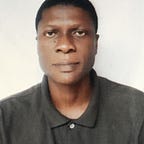Biofidy world: the future of work
Now that we know the future of education , it will be remote, self-directed and self-learning. It is time to consider the future of work.
The same drivers for the change in education are also causing the difference in the future of work — “the internet, technology as a new ecosystem service in a biofidy world” (p.8). The future of work will be self-directed, self-organizing (little need for mid-level management or supervisors), where every worker is directly outputting into the system, not managing others.
Biofidy world — a fusion of the biological-physical and digital worlds.
Next up, the future of the economy.
Current economic systems are based on biological and physical needs. We already see the advent of digital needs. This is the future of the economy. In a biofidy world, the wants and needs, and resulting products and services that govern the economy will no longer be just biological such as emotional, psychological, physiological needs or physical needs such as climate management but a unique mix of biological, physical and digital needs. What is distinct about these biofidy needs is that they may not appear based on a pre-biofidy description of reality. An emerging example of these biofidy needs is how social media directly affects our psychology (beliefs, values, mental health and social systems).
Where the needs are biofidy-derived, the currency of the future will similarly be biofidy derived. Already we see this in the rise of early versions of the cryptocurrency.
Future of identity
As our world becomes more biofidy, our social systems, education, economy, political systems, and physical environment will transform our sense of identity. Who we are will become less determined by our biology, geography, or culture but by our biofidy existence. In this way, many ideas or concepts that guide our identity, such as race, gender, language, and ideological perspectives, will reshape.
How do these affect individuals, corporations and countries?
Success in such a biofidy world will be different in some ways and the same in other ways. Just as Darwin theorized about evolution and natural selection, success in a biofidy world will depend on the fit of the individual, corporation or country to the biofidy environment. One crucial implication of fit is institutions — laws, rules, customs — we would have in a biofidy world. Today, our understanding of what constitutes property is essential in defining success and socioeconomic systems.
Similarly, in a biofidy world, our institutions on property rights will be important in determining individual and group success. For instance, is DNA individual or corporate property? Who owns or can use our personal, social or health data? Fit, and therefore the individual/group success, will depend largely on how we define property rights: who owns or can use what (biological, physical or digital); how we define private, public and open-access property; and how we transfer property.
The significant change to property in a biofidy world is that property may be described in alternate forms than the traditional self, common or public ownership/use but as a type of self-instantiated version. One possible result of this is much more available wealth for the individual than presently in a non-biofidy world. We currently see this with digital books or movies where each person can own/use/access a much more extensive library of books and music than ever before in the history of humanity. Or through telemedicine, automaton, how-to’s on YouTube, and intelligent virtual assistants (Alexa, Siri, Google Assistant), each person can access more personalized goods and services than at any other time in history. While trade wars for ownership of colour, for instance, can become problematic now, in a biofidy world, colours can become self-instantiated, i.e. individually perceived, owned and used. Which upturns our understanding of who owns or can use what.
Conclusion
The upshot of it all is that in a biofidy world, wealth will be mostly self-instantiated, which means that the individual can be incredibly wealthier than possible in a non-biofidy world. Each individual can become educated through self (self-directed, remote and self-learning), work through self (self-directed, self-organizing), earning and using self-created future types of currency (cryptocurrency). With much of our identity being self-referenced and property self-instantiated, it is possible to create and access fantastic wealth levels for the individual. Creating, thereby, a society that can be many magnitudes wealthier at the individual level than is possible in a non-biofidy world. The downside is that with great wealth comes great power and, therefore, great possibilities for good and evil.
